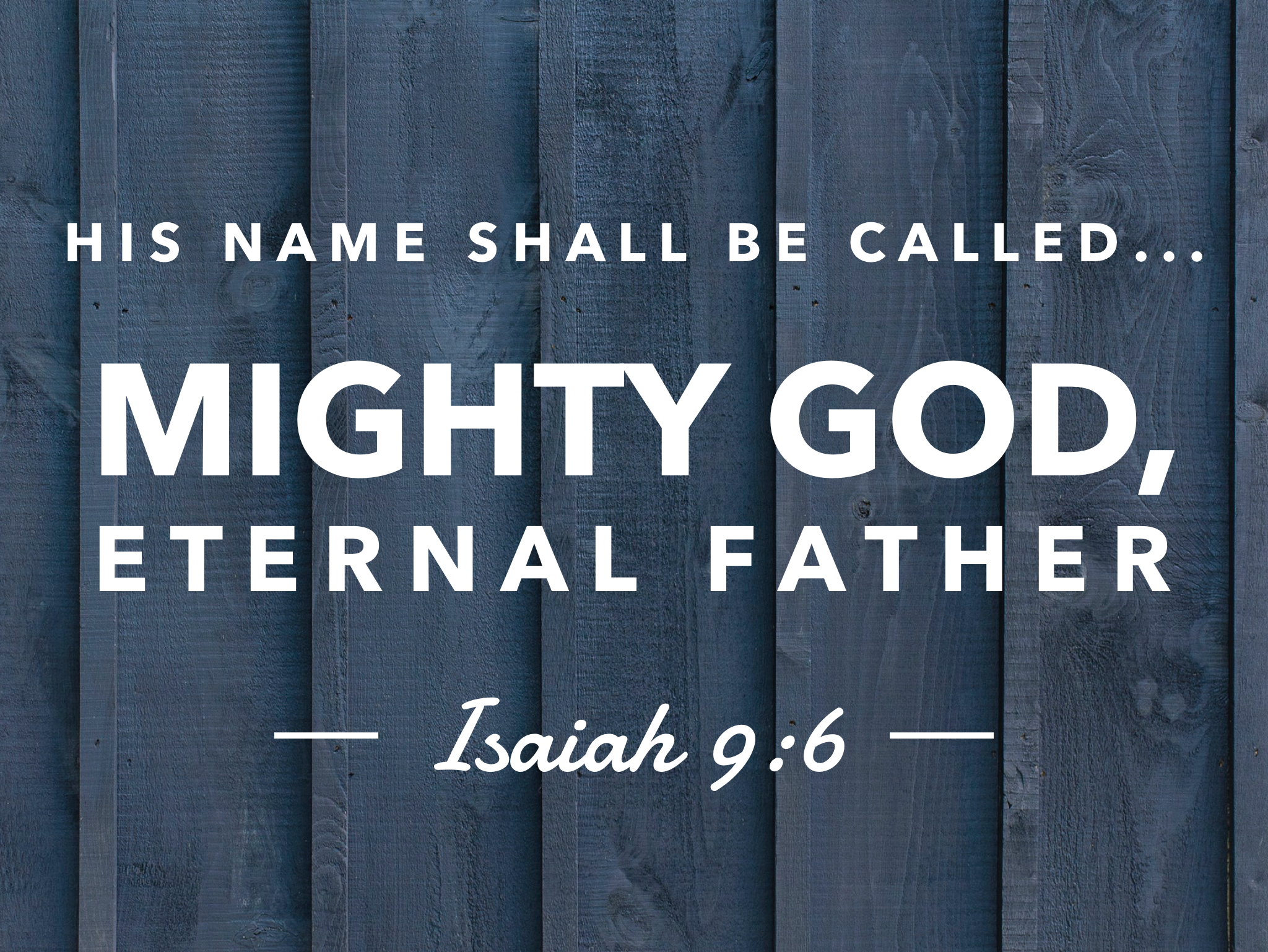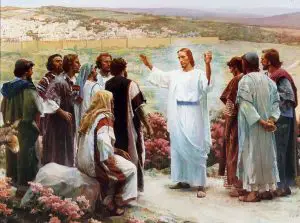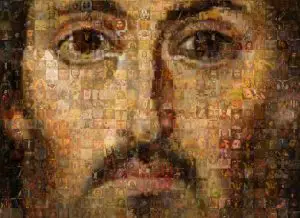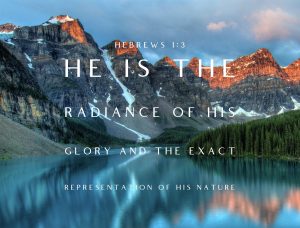In another post, we reviewed Isaiah’s prophecy regarding Immanuel, God with us. In this post we’ll examine another beloved prophecy from Isaiah regarding the coming Messiah:
Isaiah 9:6-7 (NASB) For a child will be born to us, a son will be given to us; and the government will rest on His shoulders; and His name will be called Wonderful Counselor, Mighty God, Eternal Father, Prince of Peace. 7 There will be no end to the increase of His government or of peace, on the throne of David and over his kingdom, to establish it and to uphold it with justice and righteousness from then on and forevermore. The zeal of the LORD of hosts will accomplish this.
People correctly believe this passage has its fulfillment in Jesus, but many also have been taught that it “proves” he is God by virtue of the fact that it calls the future messiah “Mighty God” and “Eternal Father.” Let’s take a closer look to find out what these two titles mean.
Background
In Isaiah chapters 7 and 8, King Ahaz of Judah is in great fear because the kings of Aram and Israel are going to make war against him. God sent his prophet, Isaiah, to encourage King Ahaz to trust in God and not look to the Assyrians for help. Unfortunately, Ahaz does not heed the Lord’s counsel, and Isaiah must prophesy that both Israel and Judah will eventually be taken into captivity by foreign nations. In chapter 9, however, the prophet brings a message of hope. Despite the gloom and darkness that awaits God’s rebellious people, He promises that “a light will shine on them.” A child will be born who will be seated on the throne of David, and he will establish a peaceful, righteous and enduring kingdom.
Mighty God
In Isaiah 9:6 the word “mighty” in Hebrew is the adjective gibbor. According to The Complete Word Study Dictionary it means: manly, brave, strong, mighty, vigorous. It is “used to describe the Child born to rule and govern God’s kingdom…”[1] Moreover, gibbor “…refers regularly to warriors, heroes, [and] champions in battle.”[2] For example, read how Shemaiah’s sons are described:
1 Chronicles 26:6 (NASB) Also to his son Shemaiah sons were born who ruled over the house of their father, for they were mighty [gibbor] men of valor. (emphasis added)
Gibbor occurs 159 times in the Old Testament, 152 of which are used to describe the character or attribute of warriors, including warrior kings. Only three times is it used as a personal attribute of God.[3]
The word “God” in Isaiah 9:6 is the noun el. It can mean: God, god, mighty one, hero. It is used most often of Yahweh, but according to The Complete Word Dictionary, “the word also designates men of power or high rank, mighty men or warriors.” [4] El is also used to designate “superior or mighty things in nature, such as mighty or high mountains, lofty, high cedars or stars.”[5] Brown-Driver-Briggs is in agreement. It says that el is applied to: men of might and rank, angels, gods of the nations, the God of Israel and mighty things in nature.[6] The book of Ezekiel provides an example of how el is used to denote a powerful earthly ruler. Speaking of King Nebuchadnezzar of Babylon, God says:
Ezekiel 31:11 (ESV) I will give it into the hand of a mighty one of the nations. (emphasis added)
In Hebrew, the words “mighty one” are translated from the single word el. The NIV and the Holman Christian Standard Bible, among others, translate el as “ruler.” God called King Nebuchadnezzar a mighty one or a ruler.
But how are gibbor and el translated when they appear in the same sentence? Again, the book of Ezekiel provides us with insight:
Ezekiel 32:21a (ESV) The mighty chiefs shall speak of them, with their helpers, out of the midst of Sheol… (emphasis added)
Notice the ESV renders gibbor el–the exact same phrase translated as “Mighty God” in Isaiah 9:6–as “mighty chiefs.” The ESV is not alone. Here are examples from other translations:[7]
NIV: gibbor el = mighty leaders
NASB: gibbor el = mighty ones
HCSB: gibbor el = warrior leaders
ISV: gibbor el = mighty leaders
Thus, we see that it is perfectly acceptable, and arguably preferable, to translate gibbor el as “mighty warrior,” “mighty hero” or “mighty ruler” instead of “Mighty God” in Isaiah 9:6. This is in perfect keeping with the picture the prophet paints of the future powerful ruler. Furthermore, nothing in the passage necessitates interpreting the passage to mean that the coming king is God himself. Unfortunately, in an apparent move to substantiate the deity of Christ, translators imposed their bias on the text.
Eternal Father
In Isaiah 9:6 the word “eternal” in the phrase “Eternal Father” is the Hebrew word ad. It is a noun that means perpetuity (i.e. advancing time), continually, eternity, everlasting, eternity, old, world without end.[8]
The word “father” is self evident, but what some might not know is that the term is not always used in a literal sense. Sometimes the phrase is used figuratively of men who were the first to do or establish something. For example, the Bible says that Jabal was the first person to live in a tent and raise livestock. Therefore, he is called “the father of those who live in tents and raise livestock.”[9] In addition, Jubal is listed in Scripture as the first person to play (or perhaps invent) certain musical instruments. Thus, he is called “the father of all who play the harp and flute.”[10] When Isaiah prophesies that the Messiah will be the eternal or everlasting father, he is communicating that the coming king will be the one to establish the eternal age. Indeed, Isaiah 9:7 says that he will “establish” the kingdom. This is in keeping with what Paul says in Colossians: Jesus is “the beginning, the firstborn from the dead, so that He Himself will come to have first place in everything.”[11] Jesus is the first or the “father” of the eternal age to come.
Some might argue that “Eternal Father” is a reference to God the Father, indicating that the Messiah and the Father are the same. However, Scripture consistently demonstrates that the Father and the Son are two separate persons. Furthermore, even the doctrine of the Trinity mandates that the two not be “confounded.”[12] The Father is not the Son, and the Son is not the Father.
To summarize what we have learned, nothing in the text under review requires translators to interpret it to mean that the coming king is God himself. On the contrary, Isaiah portrays the birth of a human child who eventually will be seated on David’s throne and given governance of an enduring kingdom.[13] This will not come about by the arm of man, but by the zeal of the LORD of hosts. Therefore, a non-biased translation of Isaiah 9:6 that is in keeping with Hebraic thought and the surrounding context would be:
Isaiah 9:6 For a child will be born to us, a son will be given to us; and the government will rest on His shoulders; and His name will be called Wonderful Counselor, Mighty Warrior, Father of the Coming Eternal Age, Prince of Peace. (emphasis added)
[1] Warren Baker, “gibbor,” The Complete Word Study Dictionary (Old Testament), (Chattanooga, TN: AMG Publishers, 2003), p. 179.
[2] Ibid.
[3] Gibbor occurs 159 times in the KJV: it is used 152 times of men (including 6 times where God is likened to a mighty man); 2 times for angels; 1 time to describe wealth; 1 time for an animal. It is used only 3 times as a personal attribute of God.
[4] Warren Baker, “el,” The Complete Word Study Dictionary (Old Testament), (Chattanooga, TN: AMG Publishers, 2003), p. 50-51.
[5] Ibid.
[6] Brown-Driver-Briggs, “el,” accessed 06-12-19, https://biblehub.com/hebrew/410.htm
[7] Abbreviations: NIV New International Version; NASB New American Standard Bible; HCSB Holman Christian Standard Bible; ISV International Standard Version
[8] “ad,” #5703, Strong’s Exhausting Concordance, accessed 06-12-19, https://biblehub.com/hebrew/5703.htm
[9] Genesis 4:20
[10] Genesis 4:21
[11] Colossian 1:18
[12] The Athanasian Creed
[13] Daniel 7:14 the Son of Man is “given” the kingdom; it is not inherently his.



